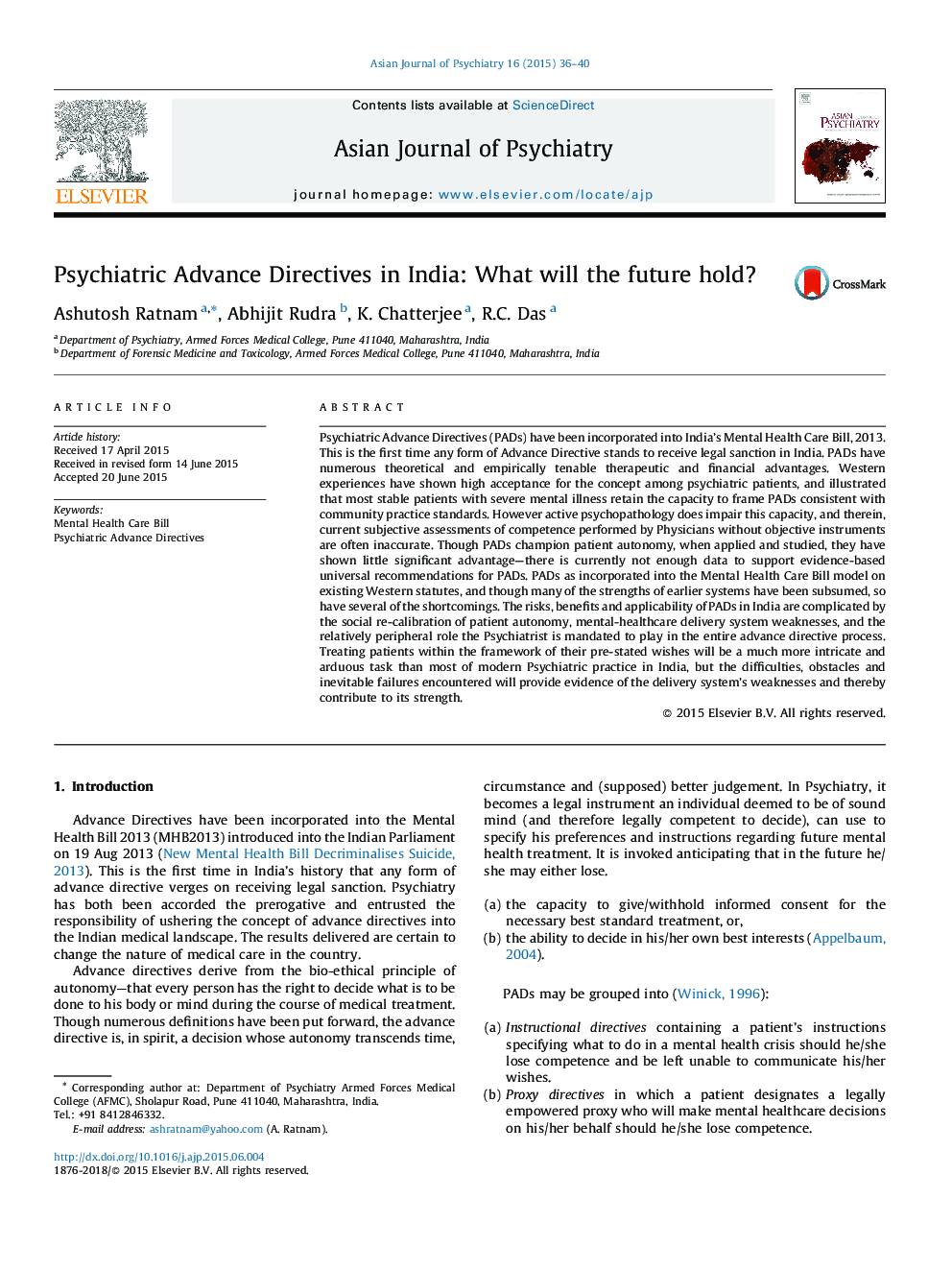| کد مقاله | کد نشریه | سال انتشار | مقاله انگلیسی | نسخه تمام متن |
|---|---|---|---|---|
| 315845 | 1432587 | 2015 | 5 صفحه PDF | دانلود رایگان |
• India's Mental Health Care Bill includes Psychiatric Advance Directives (PADs).
• This is the first time any Advance Directives may receive legal sanction in India.
• Psychiatric patients support the concept and retain the competence to frame PADs.
• Western experience shows their theoretical benefits need not materialize in practice.
• India's social, infrastructural and administrative nuances complicate PAD use.
Psychiatric Advance Directives (PADs) have been incorporated into India's Mental Health Care Bill, 2013. This is the first time any form of Advance Directive stands to receive legal sanction in India. PADs have numerous theoretical and empirically tenable therapeutic and financial advantages. Western experiences have shown high acceptance for the concept among psychiatric patients, and illustrated that most stable patients with severe mental illness retain the capacity to frame PADs consistent with community practice standards. However active psychopathology does impair this capacity, and therein, current subjective assessments of competence performed by Physicians without objective instruments are often inaccurate. Though PADs champion patient autonomy, when applied and studied, they have shown little significant advantage—there is currently not enough data to support evidence-based universal recommendations for PADs. PADs as incorporated into the Mental Health Care Bill model on existing Western statutes, and though many of the strengths of earlier systems have been subsumed, so have several of the shortcomings. The risks, benefits and applicability of PADs in India are complicated by the social re-calibration of patient autonomy, mental-healthcare delivery system weaknesses, and the relatively peripheral role the Psychiatrist is mandated to play in the entire advance directive process. Treating patients within the framework of their pre-stated wishes will be a much more intricate and arduous task than most of modern Psychiatric practice in India, but the difficulties, obstacles and inevitable failures encountered will provide evidence of the delivery system's weaknesses and thereby contribute to its strength.
Journal: Asian Journal of Psychiatry - Volume 16, August 2015, Pages 36–40
